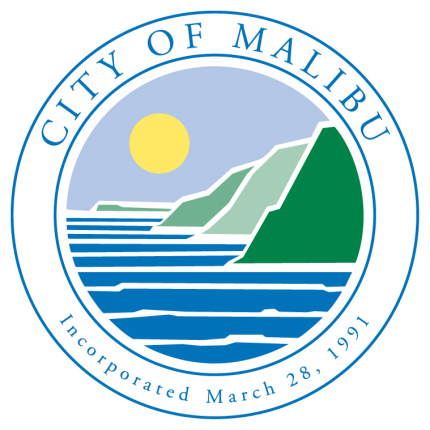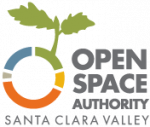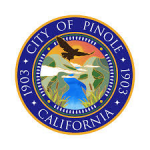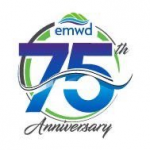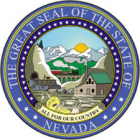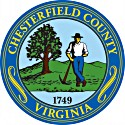Acquaint Yourself With The Pen: Mastering Government Grant Writing Jobs

The Power of the Pen in Government Grant Writing
Imagine wielding the power to secure millions in funding for crucial public projects with just your words. That’s what can happen when you write grant proposals.

In the realm of public service and social impact, few roles rival the influence of a government grant writer.
Armed with nothing more than a computer and a sharp mind, these modern-day wordsmiths have the ability to shape the future of communities, drive innovation, and catalyze change on a grand scale.
Government grant writing is far more than a mere administrative task. It’s a delicate blend of art and science, requiring a unique set of skills that can transform ideas into funded realities. As a grant writer, you become the critical link between visionary projects and the resources needed to bring them to life.
Consider this: A well-crafted grant proposal can secure funding for groundbreaking medical research, revitalize struggling neighborhoods, or launch educational programs that lift entire communities out of poverty. Your words have the power to:
Unlock Resources
By articulating the value and potential impact of a project, you can persuade decision-makers to allocate substantial grant funding.
Drive Innovation
Through compelling narratives, you can highlight novel approaches to solving complex societal issues, fostering innovation in public policy.
Create Opportunities
Successful grant applications often lead to job creation and economic growth, multiplying the impact of your writing.
Influence Policy
Well-researched and persuasive grant proposals can shape how policymakers view certain issues, potentially influencing future funding priorities.
Bridge Gaps
Your writing can connect underserved communities with the resources they desperately need but might not otherwise access.
The power of the pen in government grant writing extends beyond the immediate funding secured. It cultivates a skill set that’s invaluable across various sectors. You’ll develop:
- Razor-sharp research skills
- The ability to distill complex information into clear, compelling narratives
- A keen understanding of public policy and social issues
- Expertise in budgeting and project planning
- Strong collaborative abilities, working with diverse teams and stakeholders
As you delve deeper into the world of government grant writing, you’ll find that each proposal is an opportunity to hone your craft. You’re not just writing; you’re advocating, problem-solving, and potentially changing lives. The power of your pen can ripple through communities, leaving a lasting legacy of positive change.
Decoding Government Grant Writing Jobs
Ever wondered what it’s like to be a modern-day Robin Hood, but instead of a bow, you’re armed with a keyboard?
Government grant writing jobs are unique positions that blend creativity, analytical thinking, and a passion for public service.
These roles involve crafting compelling proposals to secure funding for various public sector projects, effectively redistributing resources to where they’re needed most.

At its core, a government grant writer’s job is to:
Research Funding Opportunities
You’ll spend time scouring databases and government websites to find grants that align with your organization’s goals and projects.
Interpret Guidelines
Each grant comes with its own set of complex rules and requirements. Your job is to decipher these and ensure your proposal ticks all the boxes.
Craft Persuasive Narratives
This is where your storytelling skills shine. You’ll need to articulate the importance of your project, its potential impact, and why it deserves funding.
Collaborate with Subject Matter Experts
You’ll work closely with project managers, researchers, and other stakeholders to gather necessary information and data for your proposals.
Manage Deadlines
Grant applications often have strict submission deadlines. You’ll need to coordinate various moving parts to ensure timely submission.
Budget Development
Many grant applications require detailed budgets. You’ll work with financial teams to create accurate and realistic financial projections.
Follow-up and Reporting
If a grant is awarded, you may be involved in progress reports and maintaining relationships with funders.
These roles can be found in various settings:
- Federal Government Agencies: Writing grants for large-scale national projects.
- State and Local Government: Focusing on regional or community-based initiatives.
- Non-profit Organizations: Securing funding for social services, arts, education, and more.
- Educational Institutions: Writing grants for research projects or educational programs.
- Healthcare Institutions: Seeking funding for medical research or community health initiatives.
Intrigued by the variety? Wait until you see the impact you can make!
The scope of government grant writing jobs is vast. One day you might be working on a proposal for an environmental conservation project, and the next, you could be writing about innovative urban planning initiatives. This variety not only keeps the job interesting but also allows you to expand your knowledge across multiple sectors.
It’s important to note that government grant writing isn’t just about writing. It’s about:
- Strategic thinking: Aligning project goals with funder priorities.
- Problem-solving: Finding creative ways to present information within strict guidelines.
- Relationship building: Developing connections with funders and stakeholders.
- Continuous learning: Staying updated on public policy trends and funding landscapes.
As a government grant writer, you’re not just an employee; you’re an advocate, a strategist, and sometimes, the unsung hero behind transformative public projects. Your words have the power to bring ideas to life, fund crucial research, support underserved communities, and drive social change.
Career Benefits: Why Choose Government Grant Writing?

What if your next career move could exponentially increase your impact on society while skyrocketing your professional growth?
Embarking on a career in government grant writing isn’t just about securing a job; it’s about opening doors to a world of opportunities that can significantly enhance your professional trajectory.
Let’s explore the myriad benefits that make this career path so appealing:
Intellectual Stimulation: Ready to turn your curiosity into a career asset?
- Continuous Learning: Each grant project introduces you to new subjects, from cutting-edge technology to social issues.
- Cross-Sector Exposure: You’ll gain insights into various fields, making you a well-rounded professional.
- Problem-Solving: Every proposal presents unique challenges, keeping your mind sharp and engaged.
Skill Development: Imagine possessing a Swiss Army knife of professional skills.
- Writing Mastery: Hone your ability to craft compelling narratives and persuasive arguments.
- Research Proficiency: Develop top-notch research skills applicable across industries.
- Project Management: Learn to juggle multiple projects and meet tight deadlines.
- Financial Acumen: Gain experience in budgeting and financial planning.
Networking Opportunities: What if your next conversation could open doors you never knew existed?
- Diverse Connections: Interact with professionals from various sectors and government levels.
- Collaborative Environment: Work alongside subject matter experts, policymakers, and community leaders.
- Industry Events: Attend conferences and workshops, expanding your professional circle.
Job Stability and Growth: Seeking a recession-proof career? Look no further.
- Government Sector Stability: Public sector jobs often offer more security than private sector positions.
- Increasing Demand: As public funding becomes more competitive, skilled grant writers are increasingly sought after.
- Career Progression: Start as a grant writer and potentially advance to program director or policy advisor roles.
Personal Satisfaction: How would it feel to see your work make headlines for positive change?
- Tangible Impact: Witness your efforts translate into funded projects that benefit communities.
- Purpose-Driven Work: Align your career with your values by supporting meaningful initiatives.
- Recognition: Successful grants can bring acknowledgment from both within and outside your organization.
Transferable Skills: What if your next job could prepare you for countless future opportunities?
- Versatility: The skills you develop are highly valued across various industries.
- Entrepreneurial Potential: Many grant writers successfully transition into consulting roles.
- Leadership Preparation: The strategic thinking required in grant writing is excellent preparation for leadership positions.
Work-Life Balance: Imagine a career that challenges you without consuming you.
- Flexible Schedules: Many grant writing positions offer flexible working hours or remote work options.
- Project-Based Work: Enjoy the satisfaction of completing projects rather than ongoing, open-ended tasks.
- Stress Management: Develop valuable time management and prioritization skills.
Global Opportunities: Ready to let your career take you places – literally?
- International Organizations: Skills in government grant writing can open doors to roles in global NGOs or international bodies.
- Travel Opportunities: Some positions may involve travel for research or presentations.
- Cross-Cultural Competence: Gain experience working on diverse, multicultural teams.
By choosing a career in government grant writing, you’re not just selecting a job; you’re opting for a path of continuous growth, meaningful impact, and diverse opportunities. It’s a career that allows you to leverage your communication skills to drive change, all while building a robust and versatile professional profile.
Resources to Kickstart Your Grant Writing Career
Armed with the right tools, you’re unstoppable. Let’s equip you for success in the world of government grant writing.
Embarking on a career in government grant writing can seem daunting, but with the right resources at your fingertips, you’ll be well-prepared to tackle this exciting field. Here’s a comprehensive list of tools, platforms, and learning opportunities to help you launch your grant writing journey:
Professional Associations: Ready to join a community of like-minded professionals?
- Grant Professionals Association (GPA): Offers networking, professional development, and certification opportunities.
- National Grants Management Association (NGMA): Focuses on grants management and compliance.
- American Grant Writers’ Association (AGWA): Provides training and certification for grant writers.
Online Courses and Certifications: What if you could learn from industry experts from the comfort of your home?
- Coursera: Offers grant writing courses from top universities.
- ed2go: Provides online grant writing certificate programs.
- GrantWritingUSA: Offers both online and in-person training programs.
Books and Publications: Unlock the secrets of successful grant writers with these must-read resources.
- The Only Grant-Writing Book You’ll Ever Need by Ellen Karsh and Arlen Sue Fox
- Winning Grants Step by Step by Tori O’Neal-McElrath
- The Chronicle of Philanthropy: A news source for the nonprofit world, including grant opportunities.
Webinars and Podcasts: Turn your commute or lunch break into a learning opportunity.
- GrantSpace by Candid: Offers free webinars on various grant writing topics.
- Grant Writing Simplified Podcast: Provides tips and insights from experienced grant writers.
Writing and Research Tools: Sharpen your writing skills with these powerful tools.
- Grammarly: An AI-powered writing assistant to polish your proposals.
- Zotero: A free tool to help you collect, organize, and cite research.
- Google Scholar: An excellent resource for finding academic papers and statistics to support your proposals.
Networking Platforms: Your next big opportunity could be just a connection away.
- LinkedIn: Join grant writing groups and connect with professionals in the field.
- GrantStation: Offers a community forum for grant seekers.
Volunteer Opportunities: Gain real-world experience while making a difference.
- VolunteerMatch: Find nonprofits in need of assistance to build grant writing experience.
- Catchafire: Matches skilled volunteers with nonprofits for specific projects, including grant requests.
Remember, the key to success in government grant writing is continuous learning and staying updated with the latest trends and regulations. These resources provide a solid foundation, but don’t hesitate to expand your toolkit as you grow in your career.
As you explore these resources, you’ll not only gain knowledge but also build confidence in your abilities. Each book you read, course you take, or connection you make is a step towards becoming a proficient government grant writer. The journey of a thousand miles begins with a single step – and these resources are here to guide you every step of the way.
Conclusion
Are you excited about the journey ahead? Here’s how to take your first steps:
Start Learning
Dive into the resources we’ve provided. Take an online course, read a recommended book, or join a professional association.
Build Your Portfolio
Look for volunteer opportunities to gain practical experience. Every proposal you write, even if unpaid, is a valuable addition to your portfolio.
Network
Connect with professionals in the field. Attend webinars, join LinkedIn groups, and participate in industry forums.
Stay Informed
Keep up with current events and policy changes. Understanding the broader context will make you a more effective grant writer.
Apply for Positions
Find grand writing jobs government agencies on our website. Your first job is a learning opportunity, not necessarily your dream position.
As you undergo this grant application process, remember that every expert grant writer was once a beginner. Your dedication, coupled with the knowledge you’ve gained, will be the foundation of your success.








